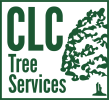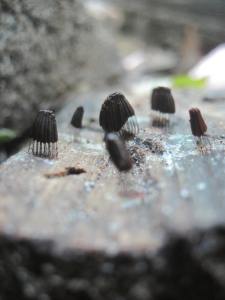While the death of a tree can be a sad thing for its loss of shade, oxygen production and carbon dioxide consumption, it is not all bad. Not only do dead trees still make for good homes for insects and subsequent food sources for the birds and mammals that eat them, but they still provide perches for birds and homes for other mammals. If they are left to decay naturally, they also eventually break down and provide nutrients for other plant life.
One of the interesting helpers in that process is the humble fungi. Not all mushrooms grow on dead wood and many mushrooms can only be found near specific kinds of trees. Most of them have some kind of association with trees though.
Fungi are broken down into categories based on how they feed; saprophytes, parasites, mycorrhizals.
Saprophytes are the decomposers. They feed on leaves and dead trees. Examples are morels, oysters, maitake, and giant puffballs.

Could this possibly be a hen in the woods?
Parasites attack living tissues and often spell death for the host plant. Honey fungus and Lion’s mane are a few types of parasitic fungi.
Mycorrhizals also grow on living hosts, but have a mutually beneficial relationship with them. They help the plant to absorb water and nutrients, while taking their own nutrients from the plant. Interestingly, farmers and horticulturists often use mycorrhizal fungi to benefit their crops. Chanterelles, porcinis and truffles all fall into this category and are all edible.
With 10,000 different species of mushrooms classified and potentially many more as yet undiscovered by mycologists, it is hard to fully appreciate this kingdom. There are edible mushrooms and poisonous. Some are used in the medical field, while others can take you on a psychedelic trip to another world! There are subtle differences between many mushrooms, so whether you want to eat, avoid or just plain identify a fungi, it is best to have a guide handy.
At CLC Tree Services we know our trees. Mushrooms on the other hand are a little trickier. We have seen plenty though. Could you help us identify some of these fungi found right here in London, Ontario? Give us a hand Mycologists and budding mushroomers! What are these marvellous mushrooms called?

The caps have distinct edges, bulbous stems, and you can clearly see gills underneath. I’d guess not edible, but not at the type of fungi here. Do you know?
* Note that CLC Tree Services are not professional mycologists. We recommend that you positively identify any mushrooms you come across before ever eating them. Many are delicious and edible, but some can be deadly. If in doubt, don’t eat it!









You must be logged in to post a comment.